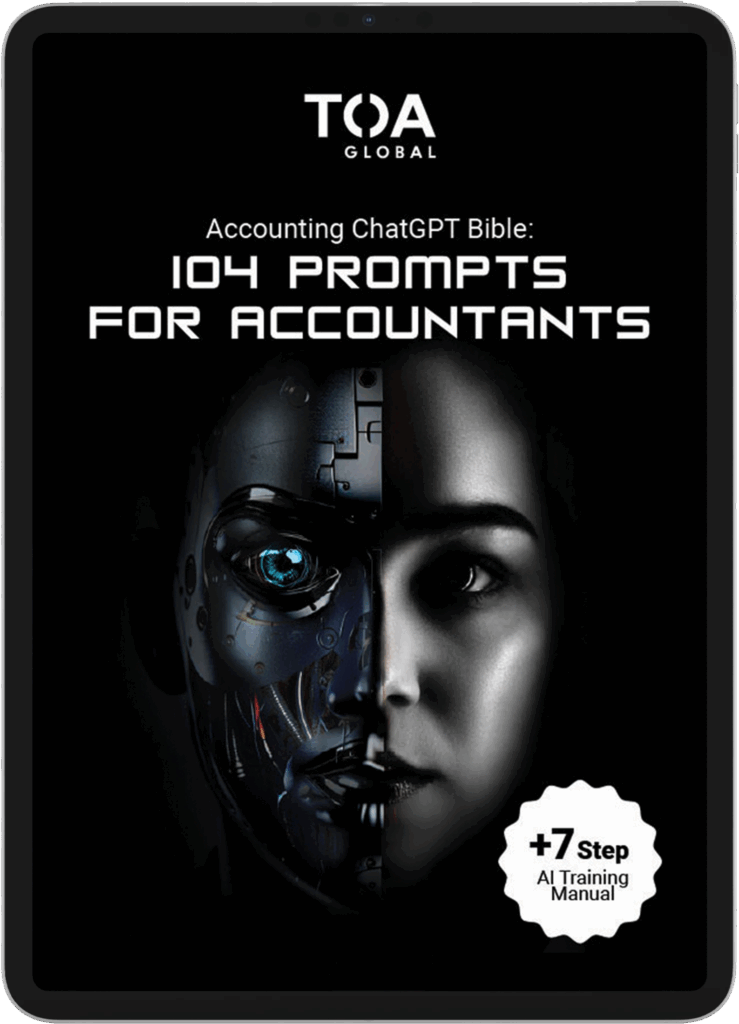Curious about what exactly an accountant does?
Whether it’s for an aspiring or a seasoned accountant, we have everything you need to know about the accounting profession.
But that’s not all you’ll be getting!
We’ve rounded up the top accountant requirements, duties, responsibilities, and some helpful facts about International Financial Reporting Standards (IFRS) that can benefit anybody — from firm owners to professionals.
We also have templates you can use: an accountant job description template for a more general accountant position and another for a more AU-focused accountant role.
What is an Accountant?
An accountant is someone in charge of a company’s finances. This role includes, but is not limited to, storing important financial documents, ensuring the transparency of financial records, and maintaining accuracy when encoding financial data.
These tasks are key to your company’s critical financial decisions. This is why screening and selecting accountants is crucial.
Accountant Requirements: Do You Qualify as an Accountant?
To become an accountant, you need to have the right credentials (and relevant accolades as well). Although there may be additional state-specific requirements depending on where you plan to practice, these are what most firms and companies look for as base qualifications:
- Bachelor’s degree in accounting
- Trained in financial reporting and keeping financial records
- Knowledgeable about accounting tasks like billing, payroll tasks, AR/AP, budgeting and forecasting
- Licence to practice as an accountant (if required by the company)
- Thorough understanding of the IFRS (International Financial Reporting Standards)
Accountants vs Certified Practicing Accountants
Are they one and the same? In some ways, accountants are like CPAs, but in others, they’re different. Note that every CPA is an accountant, but not every accountant is a CPA. Below is a table comparing accountants and certified public accountants.
Accountant
Earned a bachelor’s degree in accounting
No need to pass the CPA Program exam
Can qualify for entry-level accounting roles
CPA
Earned a bachelor’s degree in accounting and obtained their CPA licence
Taken and passed the CPA exam
Must work for 36 months under a recognised employer for aspiring
Read More: Your Ultimate Guide to Being a CPA
Accountant Duties and Responsibilities

Accurate financial records, precise financial reporting, managing general ledger functions — there are many duties and responsibilities that accountants are expected to take on. With this, we made a table of accountant responsibilities to familiarise anyone curious about the role.
Note that these are general tasks, and not all accountant job descriptions include everything in the table. For further accuracy, always check the accountant job description for the role you’re looking for. Make sure that your skills and qualifications match the duties and responsibilities indicated in the accountant job description of the company that you’re applying for.
Accountant Duties and Responsibilities
Bookkeeping-Related Accountant Duties
- Preparing financial statements
- Recording and categorising financial transactions
- Preparing and reviewing invoices
- Handling general ledger functions
- Managing income and expenditure accounts
- Reconciling bank statements
Payroll-Related Accountant Responsibilities
- Collecting employee timesheets
- Calculating allowances, deductions, and bonuses
- Distributing payment statements and receipts
Auditing-Related Accountant Duties
- Conducting in-house audits
- Preparing balance sheets and audit statements
- Ensuring compliance with laws and regulations i.e. IFRS
Tax-Related Accountant Responsibilities
- Filing and remitting taxes
- Preparing, estimating, and tracking tax returns
- Making quarterly and annual tax reports
- Planning tax season strategies
Other Occasional Tasks
- Conducting analyses of employee expenditures
- Monitoring the company accounting software and programs
- Training other beginner accountants
Based on the table, a general accountant job description entails tasks involving bookkeeping, payroll, auditing, tax, and other accounting-related ones. As they deal with financial data, accountants are also major decision makers, finding ways to reduce costs as much as possible and seeking growth opportunities for the company as well.
But they don’t stop at handling journal entries, annual returns, and variance analyses — they also value many other career-related initiatives and milestones, like continuing their education especially in related fields, or understanding the latest trends like artificial intelligence.
Aside from these, it’s also ideal for accountants to adopt new ways to handle financial data, like:
- Finding better ways to store, analyze, and company and client data
- Employing the best project management tools and integrating these into the existing workflow
- Knowing where to extract data for accurate financial forecasting
- Determining the best accounting software to use for the current accounting systems
However, accountants have varying skillsets and commitment levels to their jobs. Since accounting requires more attention to details than most jobs, a set of hard-and-fast rules had to be established.
Especially when it comes to encoding crucial financial data in the company’s ledger or reconciling financial discrepancies, accountants need extra steps to take for enhanced accuracy — and this is precisely why IFRS was developed.
Accounting Regulations: IFRS or International Financial Reporting Standards
IFRS or International Financial Reporting Standards are the standard rules and regulations in international accounting.
IFRS ensures that private and public accounting firms comply with accounting standards, aiming to enhance the transparency of financial records, the accuracy of financial reporting, the reconciliation of financial statements, and especially in fixing financial discrepancies, among other established accounting standards.
In a nutshell, here are some key points that you need to know regarding IFRS:
- IFRS was created to guarantee the accuracy of the financial records of all registered companies.
- IFRS was set up by the International Accounting Standards Board (IASB).
- IFRS are a set rules and principles of countries in Europe, Australia, and other territories, while GAAP is used in the US.
For more information on IFRS, click here.
Free Accountant Job Description Template
Now that we’ve learned about the qualifications to be an accountant, delineated successfully between accountants and CPAs, familiarised ourselves with accountant duties and accountant responsibilities, and understood IFRS, here are 2 templates – each for a slightly different accountant job description.
About the Role
As our Accountant, you will serve as a primary point of contact between us and our clients. In this role, you are expected to handle accounting tasks like bookkeeping, auditing, etc.
We’re looking for an Accountant who pays extreme attention to detail and can multitask while beating deadlines. You will be managing the general ledger, taking charge of AR and AP, and handling payroll, along with other related tasks. This position requires a competent professional who has good communication skills to liaise with clients and build long-lasting business relationships.
Duties and Responsibilities
- Keeping track of financial records and managing the general ledger
- Taking charge of accounts receivable and accounts payable
- Handling payroll tasks like collecting timesheets, applying allowances and deductions, etc.
- Reconciling bank activity and accounts
- Communicating with clients and coworkers via email, Teams, and Zoom regularly
- Preparing year-end financial statements
Skills and Qualifications
- 2 to 3 years of experience in accounting
- Strong familiarity with Xero and Microsoft Excel
- Experience handling full cycle AP with a large volume of invoices
- Can process payroll through systems
- Can build long-lasting client relationships by liaising with clients as needed
- An understanding or willingness to learn about the textile industry
Compensation
- $45,000 to $60,000
Benefits
- Flexible Working Arrangement
- Health Insurance
- Paid Leaves and Paid Time Off (PTO)
Job Type
- Full-time
About Us
[Company Name] offers accounting and financial consulting services to businesses in the textile industry. We serve our clients through handling their books, reporting important business analytics, and providing consultancy and advisory services so that best practices are implemented in your business.
Job Brief
We are looking for an Accountant to manage our financial transactions, including (but not limited to) bank deposits and budgets, fixed and variable expenses, and other financial documents.
Other accountant responsibilities include auditing, processing payroll, reconciling bank statements, making sure of accurate tax payments and returns, and handling AP/AR.
What we need is to ensure compliance with internal accounting standards (IFRS) – we want accurate financial information while ensuring we’re compliant with all tax regulations.
Requirements
- Bachelor’s degree in Accounting or other related fields
- Experience in bookkeeping, payroll, and tax
- Can handle AP/AR processes
- Attention to detail and accuracy of output
- Knowledge on IFRS
- Good communication skills
Accountant Responsibilities
- Bookkeeping Duties
- Recording and categorising financial transactions
- Preparing and reviewing invoices
- Managing income and expenditure accounts
- Reconciling bank statements
- Payroll Duties
- Collecting employee timesheets
- Calculating allowances and deductions
- Calculating bonuses
- Tax-related and Auditing Duties
- Ensuring compliance with the IFRS
- Handling tax payments and returns
- Making accurate and error-free internal audits
If you’re interested in this role, send your resume/CV to HRemployee@companyemail.com
Where to Source Your Accountants

So now that you have your accountant job description and other details sorted, where do you get your accountants from?
Given the current talent shortage in the industry, quality accountants can be hard to come by. Not to mention the piling up of tasks on your current accountant roster which can make them prone to job fatigue and burnout. This could increase your turnover rate and impact your day-to-day operations significantly.
You need accountants who are passionate about what they do, with their vision aligned with your company’s goals.
If you can’t find in-house accountants, then perhaps it’s time to look beyond your shores: enter outsourcing.
Reasons to Offshore Your Accountants
Outsourced accountants deliver consistency, show transparency, and possess an incredible work ethic. As there is a current shortage in accounting talent worldwide, global accounting teams are here to rescue.
Here are the best reasons why you need outsourced accountants on board:
Reduces operational costs
Allows room for scalability
Gives you enterprise-grade cybersecurity
Increases capacity
Lets you focus on core tasks and activities
You can source your accountants on freelance job sites, but the quality control will suffer. If you get W2 or similar employees on board, you might just be paying the same cost as getting in-house accountants.
So, what is the best course of action for this? Outsourcing is your best bet for onboarding elite accountants to take charge of your billing, invoices, general ledger, payroll, accounts payable and accounts receivable, internal audits, tax payments and returns, and more.
Looking for Outsourced Accountants?
Your business needs an elite team of accounting professionals.
From tax accounting specialists to bookkeepers, auditors, and executive assistants, TOA Global provides elite offshore accounting staffing solutions to firms worldwide.
With TOA Global, you can tap Australian-trained accountants for a fraction of the cost, which increases your capacity, allows you to focus on core tasks, and saves your firm from the current talent crisis!
Outsourcing your accountants is the long-term solution to stay in the black and flourish in the ever-evolving accounting industry. Start your journey in accounting outsourcing today.
Book a chat with us to know more.






















